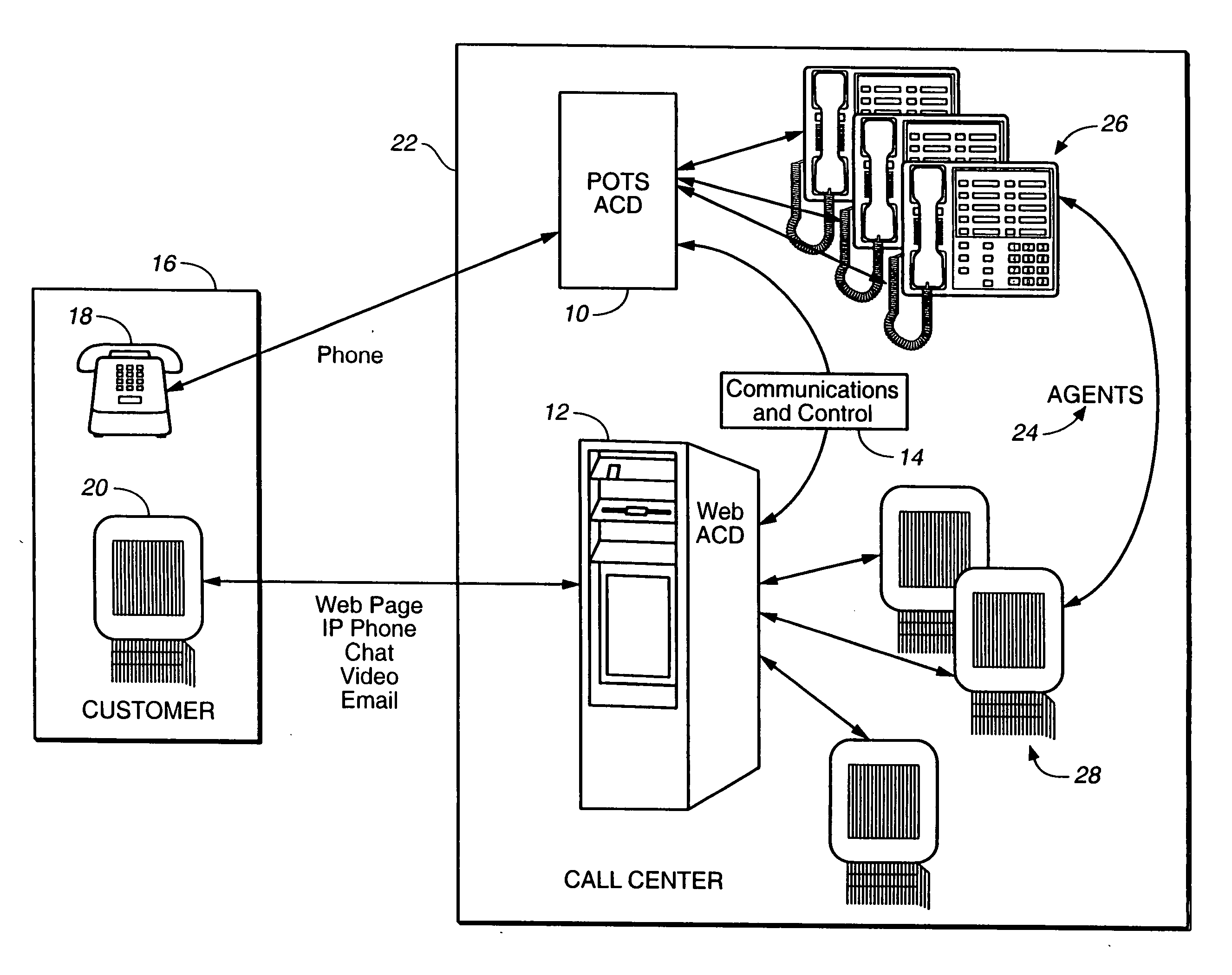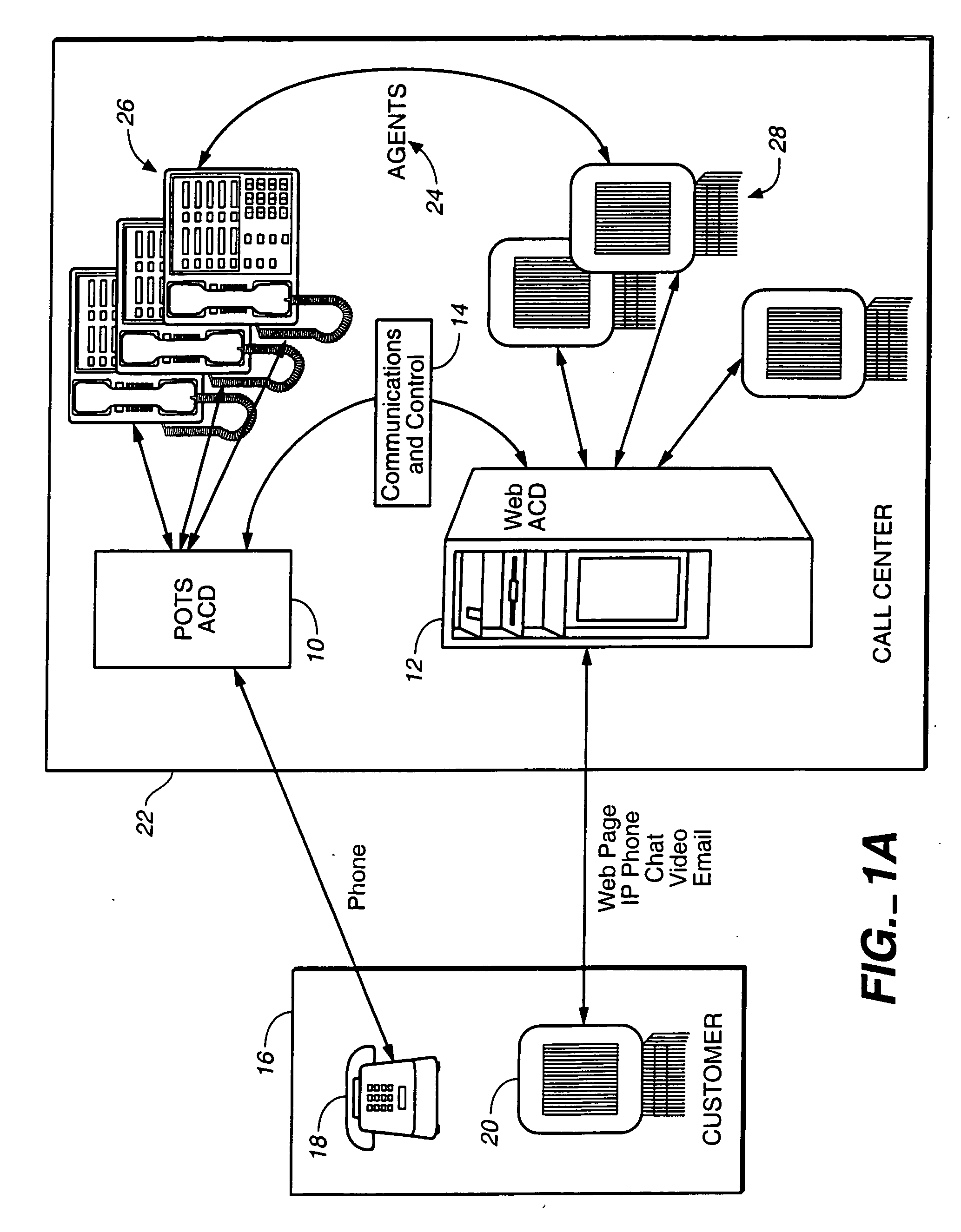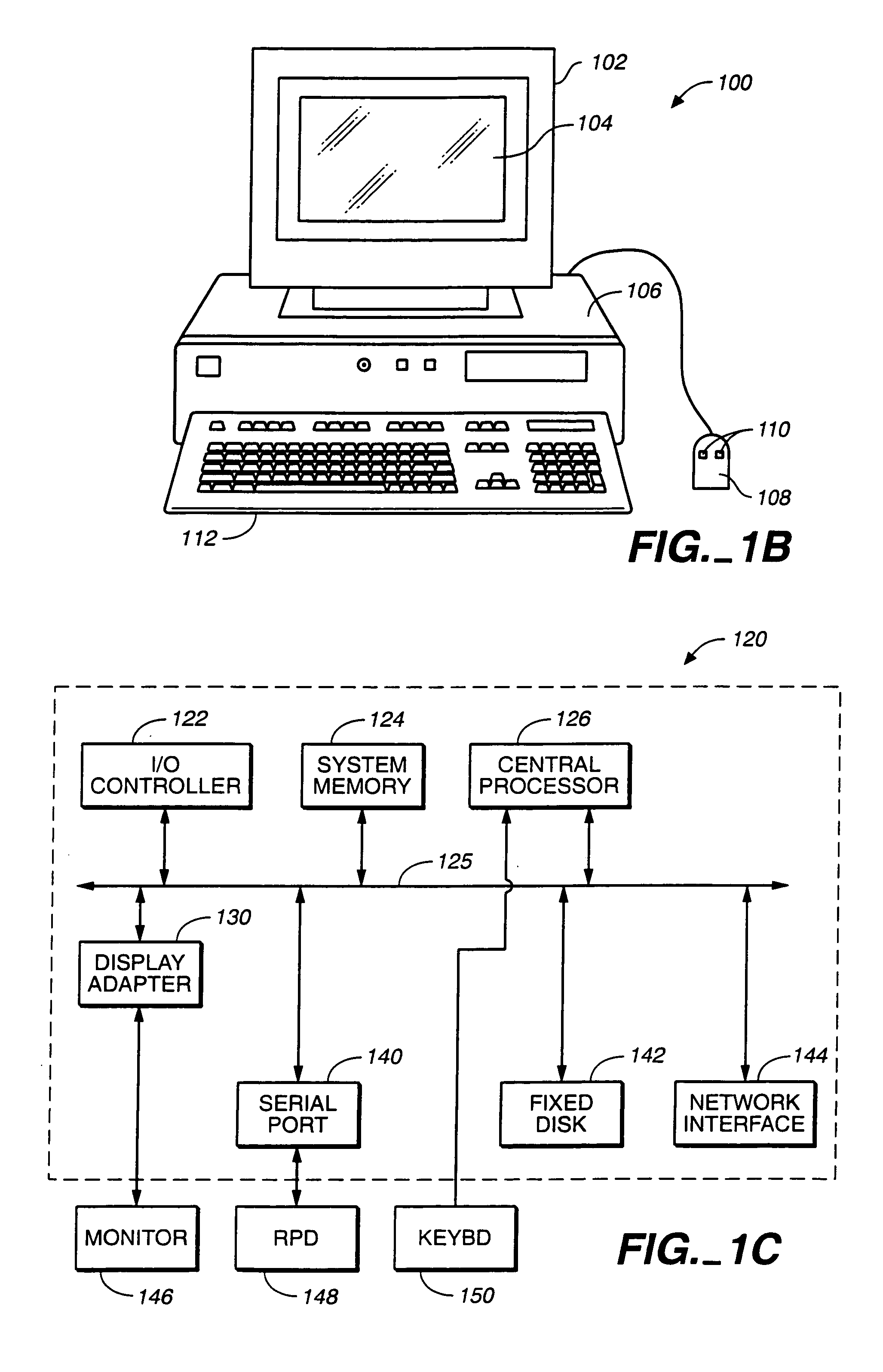Automatic call distribution system using computer network-based communication
a call distribution system and computer network technology, applied in special services, instruments, electrical equipment, etc., can solve the problems of not always providing optimum information exchange, call centers do not always provide optimum information exchange, and use of the telephone as the sole communication channel between a customer and an agent does not always provide flexible and efficient information exchang
- Summary
- Abstract
- Description
- Claims
- Application Information
AI Technical Summary
Benefits of technology
Problems solved by technology
Method used
Image
Examples
Embodiment Construction
[0041]FIG. 1A illustrates the overall concept of the present invention. In FIG. 1A, plain old telephone system automatic call distribution (POTS / ACD) system 10 provides a telephone interface. POTS / ACD system 10 is integrated with other forms of communication such as those provided by a computer network. Specifically, the network can be the Internet using the World Wide Web (WWW or simply “Web”) protocol defined, in part, by hyper-text markup language (HRML) pages. Communication types can be, for example, web pages, so-called Internet Protocol (IP) voice communication (such as that defined by International Telecommunications Union (ITU) recommendation H.323 (02 / 98)), packet-based multimedia communications systems, chat, video and e-mail. Any number or combination of these communication types can be used in different configurations of the present invention. Specifically, one or more of the network communication types can be used in a call center of the present invention without the ne...
PUM
 Login to View More
Login to View More Abstract
Description
Claims
Application Information
 Login to View More
Login to View More - R&D
- Intellectual Property
- Life Sciences
- Materials
- Tech Scout
- Unparalleled Data Quality
- Higher Quality Content
- 60% Fewer Hallucinations
Browse by: Latest US Patents, China's latest patents, Technical Efficacy Thesaurus, Application Domain, Technology Topic, Popular Technical Reports.
© 2025 PatSnap. All rights reserved.Legal|Privacy policy|Modern Slavery Act Transparency Statement|Sitemap|About US| Contact US: help@patsnap.com



